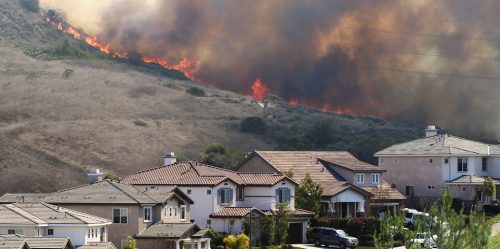
Natural calamities such as hurricanes, tornadoes, earthquakes, and floods can strike at any time without warning. These disasters are not only dangerous but can also cause massive damage to our homes and properties. As a responsible homeowner, it is crucial to have a safety plan in place to protect your family and your home in case of such emergencies. In this blog post, we will discuss safe haven strategies to prepare your home for calamities.
Know the Risks and Prepare Accordingly
The first step in preparing your home for any disaster is to be aware of the potential risks in your area. Research about the history of natural disasters in your region and understand how they can affect your home. If your area is prone to hurricanes and flooding, focus on building a sturdy foundation and installing flood-resistant features such as shutters and waterproof doors. For earthquake-prone areas, make sure your home has proper reinforcement and secure heavy furniture and appliances.
Create an Emergency Kit
In case of any disaster, electricity and water supply can get disrupted for an extended period. It is crucial to have an emergency kit ready in your home, which includes essentials such as non-perishable food, water bottles, first-aid supplies, flashlights, batteries, and a basic tool kit. These items will come in handy during power outages and can help you survive until assistance arrives.
Have an Evacuation Plan
In some situations, it may be necessary to evacuate your home. It is essential to have an evacuation plan in place beforehand, so you and your family can act quickly and safely. Identify the safest evacuation routes from your home and designate a meeting point outside the disaster zone. Make sure everyone in your household is familiar with the plan and knows what to do during an emergency.
Secure Important Documents
In the event of a calamity, important documents such as birth certificates, passports, and insurance papers can get damaged or lost. It is crucial to secure these documents in a waterproof and fire-resistant safe so that they are protected from any potential damage. You can also consider keeping digital copies of these documents for extra security.
Regular Maintenance
Prioritize your home’s safety during disasters. Regular maintenance is crucial for withstanding severe storms. Address potential hazards like clogged gutters and overgrown trees. Schedule tree removal in Bountiful to eliminate risks near your home. Strengthen weak areas like the roof and foundation to prevent costly damage. Regular maintenance ensures your home is ready for any disaster.
Invest in Insurance
Despite taking all the necessary precautions, disasters can still strike and cause significant damage to your home. Investing in insurance for your property is a wise decision to protect yourself financially in case of any calamity. Make sure you understand what your insurance covers and if there are any additional policies you may need for specific disasters.
Create a Family Communication Plan
In the event of a disaster, it is common for communication networks to be disrupted. It is crucial to have a family communication plan in place, so everyone knows how to contact each other during an emergency. Designate one person outside the disaster zone as the point of contact for your family and make sure everyone has their phone number memorized.
Practice Drills
Preparing for a disaster should not be limited to just making plans, but also practicing them. Conduct drills with your family to ensure everyone knows what to do in case of a calamity. This will help reduce panic and confusion during an actual emergency.
Be Informed and Stay Alert
Staying informed about any potential disasters in your area is crucial. Sign up for alerts from the local authorities, keep track of weather updates, and have a battery-powered radio in case of power outages. Stay alert and be prepared to act quickly if necessary.
Conclusion
Preparing your home for calamities is not just about protecting your property but also ensuring the safety of your family. By following these safe haven strategies, you can minimize the potential damage to your home and ensure that everyone stays safe during an emergency. Remember, it is always better to be prepared than to regret not taking the necessary precautions. Stay informed, stay safe!






